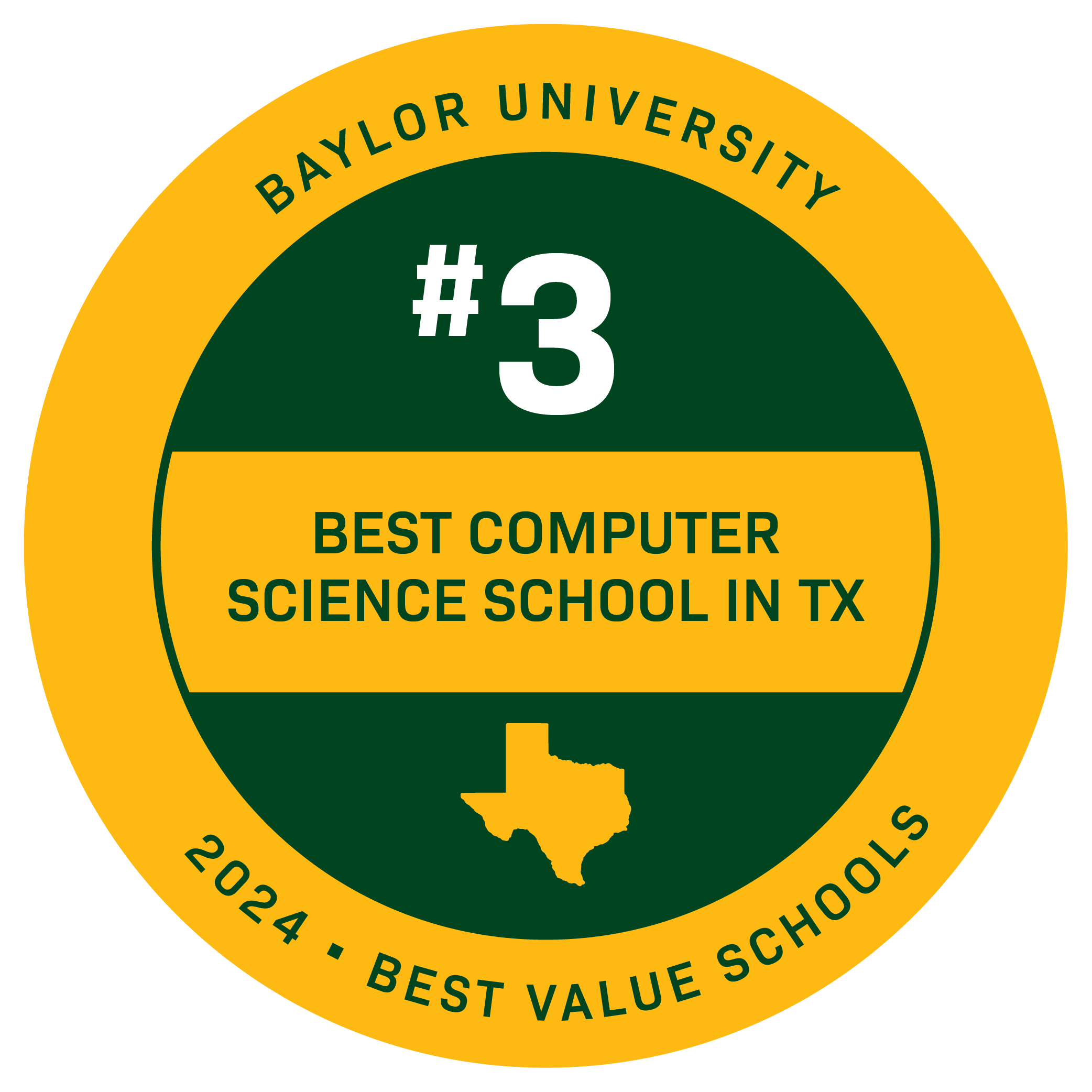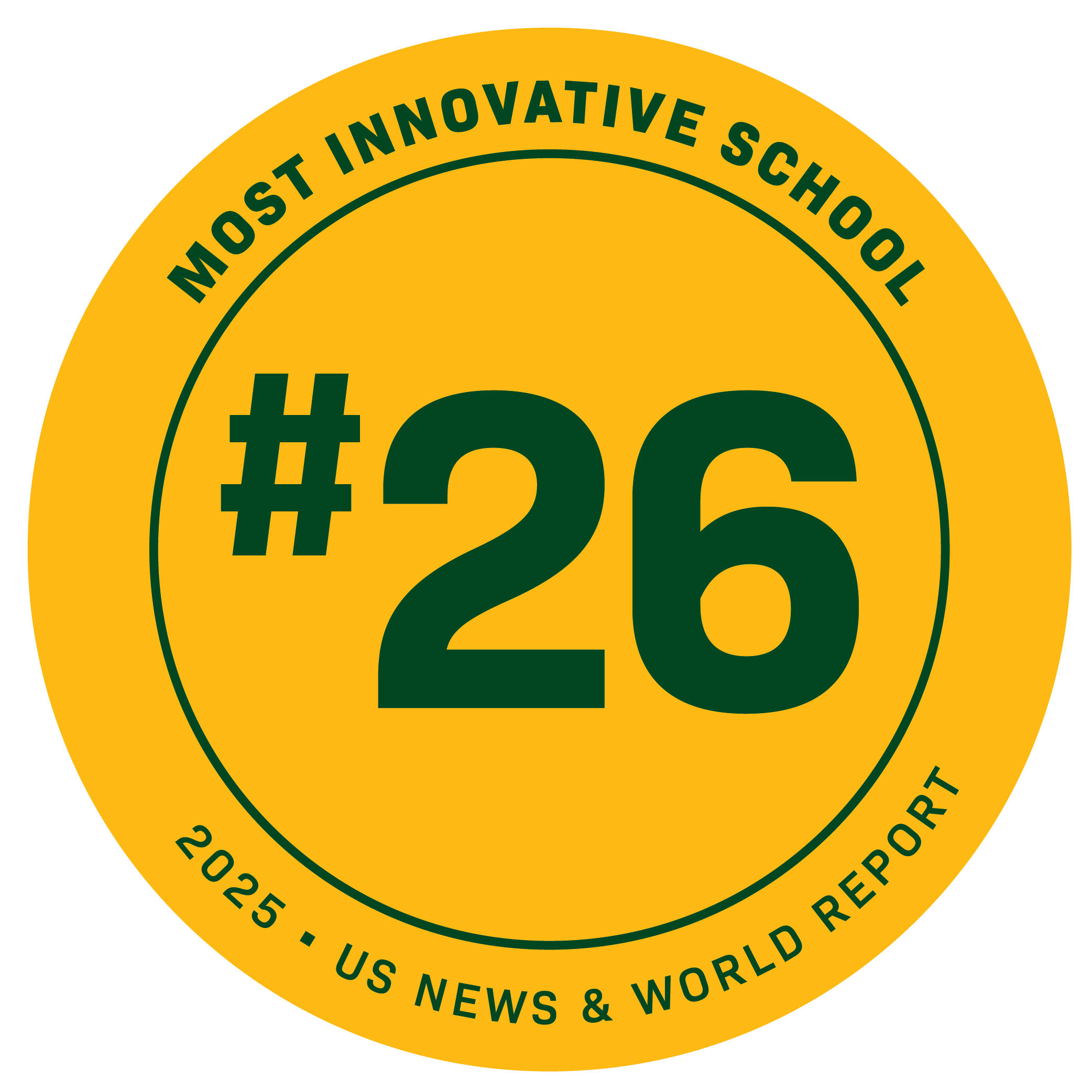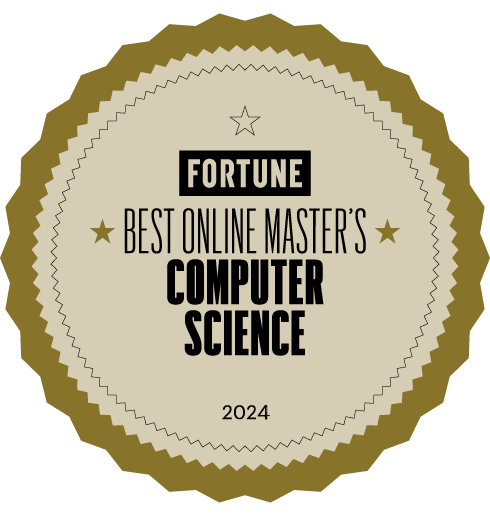Intro to Computation Theory
Several models of computation (including finite automata, pushdown automata, and Turing machines) and their related languages. Topics include closure properties, regular languages, context‐free languages, decidability and recognizability, and time and space complexity (including NP‐completeness and randomized complexity).
Software Verification & Validation
Pre-requisite(s): CSI 5303, or equivalent; or consent of instructor. Advanced topics in software engineering research, including techniques used in software verification and validation with a particular focus on software specification and testing.
Applied Artificial Intelligence
Traditional machine learning algorithms, neural networks, etc., are pieces of a greater puzzle required for machines to qualitatively learn, rather than just statistically remember. Therefore, students learn new AI approaches and AI architectures: autonomy, deep sensing, measuring trust, complexity analysis, security, ethics, multi-state, and quantum for producing systems for challenging human settings like deep-sea, space, and disaster recovery
Design and implementation of distributed systems with up-to-date software architecture and relevant development frameworks. Topics include inter-module communication, asynchronous processing, security, concurrency, parallelism, and an overview of contemporary enterprise technology and challenges.
Pre-requisite(s): Students are expected to have competency equivalent to CSI 5301, or equivalent course. Advanced data structures, algorithm design, and analysis. Topics include common data structures, algorithms, implementation, classes of algorithms, algorithm analysis, computational tradeoffs, and adaptation of familiar algorithms to new problems.
Advanced Object-Oriented Development
Object-oriented design and development with best practices in solving recurring engineering problems. Topics include core object‐oriented concepts, such as composition, inheritance, polymorphism, and templates; an overview of design pattern‐based problem solving and design practices; and advanced design patterns applicable for enterprise solution development.
Pre-requisite(s): Students are expected to have competency equivalent to CSI 5303, or equivalent course. Methods for developing and maintaining software systems; system software life cycle, requirements elicitation, specification and design methods, planning, maintenance, configuration management, documentation and coding standards, cost estimation, metrics and quality attributes; class project.
Advanced Data Communications
Pre-requisite(s): Students are expected to have competency equivalent to CSI 5304, or equivalent course. Survey of current and seminal research in networking.
Advanced Software Engineering
Prerequisite(s): CSI 5324 or consent of instructor. Advanced topics in software engineering research, including techniques used in the modeling and analysis of complex systems.
Recognition:
Baylor University has received multi-faceted recognition by U.S. News & World Report & Fortune for its commitment to excellence, including:
Pre-requisite(s): Students are expected to have competency equivalent to CSI 5302, or equivalent course. A continuation of database system implementations to include object-oriented and knowledge-based systems. Additional topics covered are physical-data organization, database integrity, security, transaction management, and distributed database management.
Software Verification & Validation
Pre-requisite(s): CSI 3372 or consent of instructor
Advanced topics in software engineering research, including techniques used in software verification and validation with particular focus on software specification and testing.
Design and implementation of distributed systems with up-to-date software architecture and relevant development frameworks. Topics include inter-module communication, asynchronous processing, security, concurrency, parallelism, and an overview of contemporary enterprise technology and challenges.
Application Deadline: Now Accepting Applications.
Advanced Object‐Oriented Development
Prerequisite(s): Consent of the instructor. Object-oriented design and development with best practices in solving recurring engineering problems. Topics include core object-oriented concepts, such as composition, inheritance, polymorphism, and templates; an overview of design pattern-based problem solving and design practices; and advanced design patterns applicable for enterprise solution development.
Advanced Software Engineering
Advanced topics in software engineering research, including techniques used in the modeling and analysis of complex systems.
Introduction to concepts in cybersecurity, including cryptography; instruction detection/prevention; attacking/defending; cybersecurity tools; malware and reverse engineering; and defensive programming.
The Baylor Advantage
The Master of Computer Science online program places you in the position to work on real-world projects. Software Engineering candidates at Baylor University also understand that their work can help the world. As a graduate student, you would bring to life the university’s mission including its commitment to:
“...advanced educational opportunities to develop ethical and capable scholars and practitioners who contribute to their academic disciplines, professional fields and society.”
A dedicated Student Success Coach helps every student navigate graduate school from admission through their final project. You can add valuable skills and knowledge from faculty with industry experience. The Master of Computer Science online program also keeps student cohorts together to encourage collaboration.
High Demand for Computer Science Roles
Texas is the second-largest market
for computer-related positions
- CompTIA, 2022
The Baylor Difference
Baylor University equips students in the Online Master of Computer Science - Software Engineering program for success in their field. Our program will deepen your knowledge and build on core competencies. With a strong foundation in algorithms, databases, and cybersecurity concepts, you’ll be prepared to apply what you learn from a global perspective.
How long is the online Masters in Computer Science - Software Engineering program?
Students with a Computer Science background typically complete the program in just over 1.5 years. Students with a non-Computer Science background typically complete the program in just over 2 years. Length to program completion may vary by student.
Is a Computer Science degree required to qualify?
No. Applicants with a Bachelor of Science (B.S.) degree in Engineering, Mathematics, Physics, or another closely related field are also eligible.
Is programming experience required?
Yes, you must be proficient in a high-level, object-oriented programming language such as Java, Python, C, C++, or C#. Programming experience that is self-taught would not apply and proficiency must be acquired via work experience or education.
Am I eligible for the program if I am a self-taught programmer without formal programming education?
Programming experience can only be acquired via education or gained through work experience. If gained through work experience, you must prove your proficiency with programming.
What if I have experience with only one of the five programming languages required?
Experience and proficiency with any one of the five (Java, Python, C, C++, or C#) is sufficient.
If I don’t have a degree in Computer Science or something similar, which math classes must I complete to be eligible for the program?
Calculus II AND Linear Algebra.





